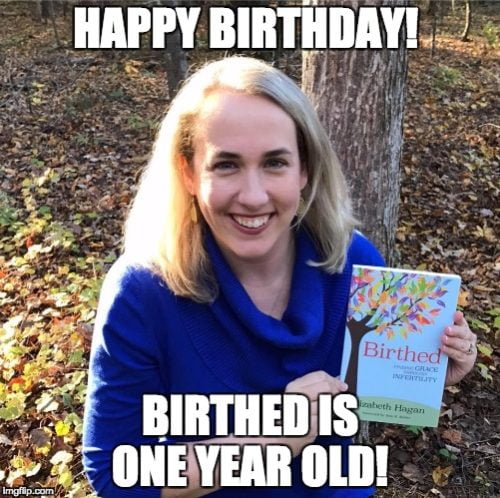 Happy birthday, Birthed! One year ago-- December 6, 2016, my first book was birthed into the world! Oh happy day.
Happy birthday, Birthed! One year ago-- December 6, 2016, my first book was birthed into the world! Oh happy day.
I can remember the emotions of that week so clearly. Friends and family who'd heard me talk about "that book project" for years finally held their hands on a real life copy. All of my worst marriage moments, darkest nights of doubt and depression and failed attempts to get and stay pregnant now belonged to every reader who picked it up-- not just me (a bit scary!) And all the while, I felt jazzed up about marketing and promotion with a strong belief that I could sell books if I gave it my best effort (and I did!).
In the 12 months since that launch, I've lived into what it means to birth and be birthed. Like any watershed moment in life, I've learned so much.
I've learned the best book events happen when you are hosted by those who believe in your words and seek to create experiences for those in their circles of influence. One of my favorite book gatherings happened around this beautiful table in Birmingham, AL at my friend April's house. She even bought each dinner guest of hers a book-- how amazing! 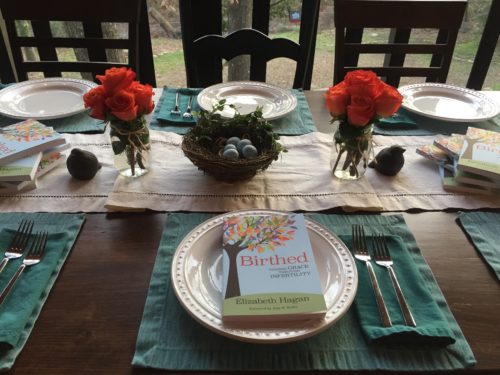 I've learned that infertility is still a topic that we don't want to talk about in our churches, mom's groups or even in our families. I can't tell you how many times I've asked to connect with a church or a group about Birthed and heard, "Oh we can't talk about that here." (Deep sigh).
I've learned that infertility is still a topic that we don't want to talk about in our churches, mom's groups or even in our families. I can't tell you how many times I've asked to connect with a church or a group about Birthed and heard, "Oh we can't talk about that here." (Deep sigh).
I've learned that your book's success is not based on the number of copies you sell (honestly I avoid knowing because I don't want to obsess) but on emails you get from readers who say, "Thank you. Your story is my story. I'm so glad you wrote it." But the truth be told, publishing is HARD and NOT for the faint of heart. There are parts of me that feel really sad about how the book has been received. But I move on.
I've learned that publishing opens up speaking opportunities in the most unexpected places-- like this time this spring I got to speak to a group of Marriage and Family Studies students at Samford University. Who knew that college students and professors would want to talk about my book and plan to use it as required reading? 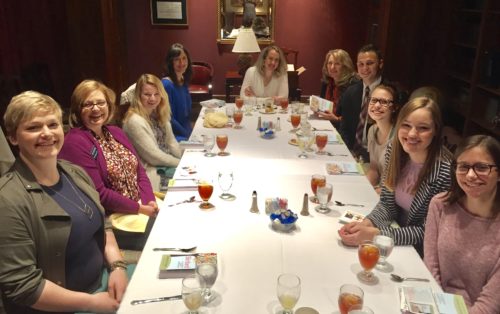
Most of all, I've learned I want to write and publish again. The kind of ministry I was able to do as result of publishing Birthed, (ministry like leading retreats, speaking to groups and hosting round-table heart-to-heart discussions among groups of friends) IS the work I see myself doing long-term.
And this writing more will look like another memoir-- a book on the topic of orphan care and my own journey of adoption-- that I've been drafting since 2015 as well as a spiritual formation resource for congregations (I hope) as a guide on how to talk about other hard topics. So keep hanging with me for the ride. I promise I've got more in me.
But, there's one more thing I need to tell you about this birthing day . . .
It's also the day that we "officially" became parents forevermore to our baby girl. On the day the book about our struggle toward parenthood was published, our adoption was finalized as well. The court just assigned us the date. I don't want to believe this fact is coincidence. Can you feel my goose bumps?
For you see, as much as Birthed: Finding Grace Through Infertility is a story of grief, loss and hope, so is adoption. Adoption is a beautiful and pain-filled occasion all rolled into one. Our girl lost her first family before she became a part of ours. December 6, 2016-- oh the birthing day, you were!
And I wouldn't take anything for my journey now.
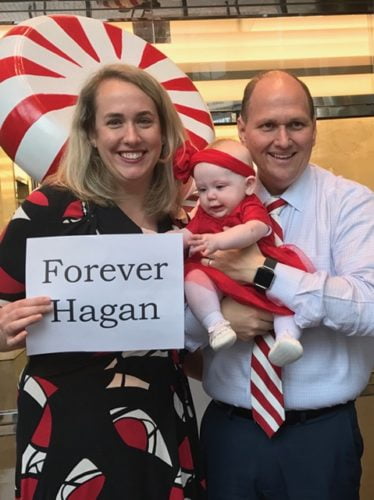
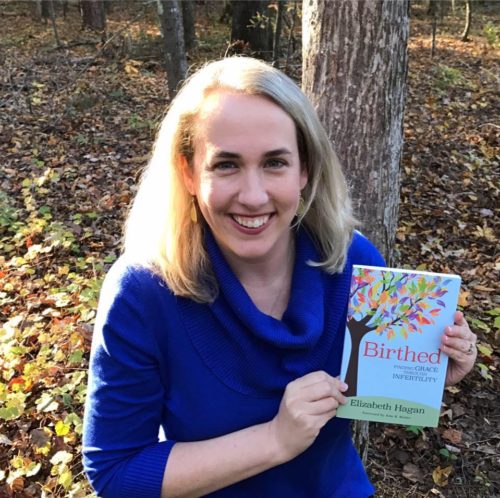 Since I first drafted what became Birthed: Finding Grace Through Infertility back in 2013, I've been on a journey of learning about publishing.
Since I first drafted what became Birthed: Finding Grace Through Infertility back in 2013, I've been on a journey of learning about publishing.
How does it work? What are the secrets (if any) to success? What are the best choices to make as a first time author?
As much as friends or colleagues offer you advice, until you go through the publishing once there are just some aspects of the business you can't understand.
Today, I want to share 5 misconceptions that I've learned through this process:
1.Publication will make you feel like a "real" writer.
I meet folks all the time now who want to talk to me about their idea for publishing a book.
Most of the time, they're good ideas, inspired ideas, the makings of books I'd love to read one day. These folks are serious too. They've drafted chapters. They've written outlines. They're even beginning to think about their target audience and crafting their narrative in that direction.
BUT, they say, "I can't find anyone to publish it." And they look so sad.
Because here's the thing. Writers often equate publication with success. Validation comes with someone "out there" saying our ideas are worthy enough to bind in a book.
Hear me say this, since publishing Birthed, I feel the same as I did pre-Birthed. I continue to blog like I always do. I write for other publications regularly as before. While I'm so glad my memoir was published, I really don't feel like I've suddenly arrived as a writer. I was just taking the next step of who I already was.
(If you have a good idea and completed book-- self-publication is not a bad idea! Don't let publishers define your worth. Go for it!)
2. You make money writing books.
If you go into writing books for the money, be prepared to live on food stamps. Of course, the big box publisher situation is different. But in small publisher land, there's no advances or if there is one it's very small. Additionally, know this: the standard publishing arrangement of what you receive per book you sell is somewhere in the range of $1 a book. Yes, you read me correctly. $1.
When I think about the hours that it takes to produce a quality project-- all of the revising, re-writing and painful meetings with editors, what you're getting is pennies on the hour if that.
This fact can be deflating, but if you're not in it for the money it doesn't feel so bad. My husband always jokes with me when I complain that I'm getting "stars in my crown" since I say that writing is part of my faith calling....
As an aside, be nice to your writing friends-- be willing to pay for their work. Don't expect you'll give them a copy for free. How would you feel about giving away your art for pennies?
3. When your book comes out, publishers send you on a book tour.
Publishers, especially small ones, send you nowhere. It's all you. You organize everything.
Folks have noticed that I've been busy though the past couple of months hosting book signings and events at churches talking about Birthed. Note: all of these engagements I arranged. Many of them came from personal asks. Emails that began like, "Hey, I just published a book, I'd love to come to ...." Others came from invitations of those already invested in my work because they edited drafts or endorsed it. Or mentors who followed my journey and wanted to support me.
Bottom line if you want to have a "book tour" in times like this draw upon your personal connections-- people who will make meaningful events for you happen. If you want to talk to me about visiting you, check out my schedule and send me a message! (See, I'm always looking for ways to make an ask).
4. The more live events you have the more successful your book becomes.
Seems logical, right? Events sell books. So events are good.
Events are good if you enjoy meeting people (which I do!). But books don't always sell at events. Amazon and e-books are powerful pulls especially when you've written a book about a topic that brings people shame, like infertility. Folks want to buy books like these from the comfort of their home.
Furthermore, if you talked to a crowd say of 100, the standard fundraising stats are that 3-5% of those present will respond. Yet, for example, I spoke to a church a couple of weeks ago of about 100 and sold 10 books. I was thrilled. It was great return (though doesn't seem like a lot) than normal.
It's important to mention here that events are costly to put together. You often have to spend money to drive or fly somewhere. You have to stay somewhere. All of this adds up (unless a group is supporting you).
Instead, what IS helpful for marketing though is big name endorsers-- writers/ speakers/ leaders with a bigger platform than you willing to put their nose out and say, "This is a great read because . . . "
5. People will be as excited about your book as you are. 
They won't, sadly. Though of course, some will like your mom . . .
It's important to realize that you've invested so much of your life in every word of your manuscript. You've painfully made the choice over verb tense, chapter headings and what type of table of contents you'll have. You've mulled over the title of the book, the cover design and how to word the description of yourself on the back.
And while you're proud of what you've pulled together (and you should be), just don't expect others to be invested in the details as you have. (Do you hear how many time I've used the word "you?"). It's your baby and as you send it out into world, it's time to let go. Others will respond as they will.
Those who care will surprise you. Those who ignore it will surprise you even more. But, by time you've reached publication, again I'll say it's not yours. Let it be. It will do what it needs to do without you worrying about it so much.
All in all I'm so thankful I published my first book and I hope my publishing career isn't over. I know I have more books in me. And if you have a book in you, let's talk off line. I'm know I have so much more to learn. I want to learn from you.
 It's National Pregnancy/ Child Loss Month. And I have been invited to guest blog over at Project Pomegranate for the next several weeks about my experiences and writing #Birthed. Recently I offered this post that I'd like to also share with you today:
It's National Pregnancy/ Child Loss Month. And I have been invited to guest blog over at Project Pomegranate for the next several weeks about my experiences and writing #Birthed. Recently I offered this post that I'd like to also share with you today:
Since folks have heard that I wrote a memoir about my struggle with infertility, many ask: “How could you write something so painful, so personal?”
The answer I give is “How could I not?”
When my husband, Kevin and I were in the throes (and I really mean the throes) of our deepest pain of miscarriage and failed fertility treatments in 2009, I searched and searched for resources.
Not being the type of person who liked support groups and avid reader . . .
I looked for comfort in books because I could read books at home without having to go anywhere or talk to anyone about my infertility (and at my privacy was a key at that time). In the books I kept buying (and buying) from Amazon each week, I craved good, honest stories like:
I wanted someone to tell me what it felt like to visit the doctor every single morning at 7:30 am.
I wanted someone to tell me what it felt like hear via email that one of your best friends is pregnant the 3rd time without really trying (sigh).
Or, to find that an IVF cycle didn’t work for the 4th time as savings accounts sat drained.
For, when these things happened to me, I crumbled and crumbled hard. Many weeks I didn’t get out of my pajamas for days and some nights I drank too much too. I felt shame for not being able to cope with the loss appropriately (as if not being able to carry a baby successfully was a failure enough!)
Yet most of the books I read at that time fell into one of two categories (in my opinion).
To my frustration, neither of these approaches seemed congruent with our experiences.
They left me feeling judged for my choices and often feeling more isolated. While sure, it was nice to find solidarity with those who had walked in similar shoes, I hated getting to the end of the book only feeling like there’d been little to no movement on the part of the author.
I wanted a deeper, more reflective memoir.
I wanted someone to tell me how they found God in the mess of so much loss and so much pain.
I wanted to know how I could move from the angry and obsessive cries of “must have baby now” to “there’s hope for me no matter what.” I wanted to know that God hadn’t forgotten me and was just as loved as my “with child” friends.
So, when I sat down to begin to tell our story in Birthed: Finding Grace Through Infertility (which will be released by Chalice Press on December 6th) . . .
I sought to create the memoir I was looking for but never found: a story of hope, a story of wrestling with God, and a story of moving toward healing even when our journey kept not turning out like we expected.
I can’t wait for you to read it and tell me what you think.
If you live in West Virginia, Oklahoma or North Carolina I am coming to you soon. Visit my schedule page to learn more.
No one gets publishing deals these days without a lot of sweat and tears and a huge platform.
When you are a person who wants to publish a book one day the number one thing that potential editor will ask you is, "Could you describe your platform?"
Having a platform is social capital. Who do you have in your corner? What kind of people read what you already produce? How many hits does your blog get a month?
Publishers care about social capital because they want to sell books. They want to know if your platform is substantial enough to turn a profit. Especially as a first time author, the strength of your platform is everything in terms of making a first impression. Without a platform that others deem worthy enough, you might as well go back and crawl into your writing hole and try again later.
Maybe I'm being dramatic, but in this cut throat world of publishing and superstar bloggers, subscriber lists and retweets, having a strong platform is everything to making your up the ladder in the big girl publishing world.
I understand-- it is just the way the world works, but at the same point I'm completely frustrated by the whole bit.
Why? Because some of the most spectacular voices I know aren't those without audiences that would be deemed notable.
They are friends who've published their first book and are in the proposal stage for their second, though the Huffington Post or the Christian Century won't give their ideas the time of day.
They are friends who're dreaming about blogging more than once a month with wisdom to offer that leaves me speechless but have other commitments other than writing for now.
They are friends who shoot me their essays every now and then with such gems of language that make me want to weep but their lack of internet skills mean they'll never have a blog.
And I'm influenced by all of them. I'm challenged by their grit, their honesty and their wit. And though they go unnoticed by the large media and might be deemed unimportant by those with the power to say their words get out to a larger audience or not, their voices-- at least to me-- still have worth. I follow them even though they may only publish an article once a year or blog every six months. And I'm all the better for having experienced their offerings.
I've been blogging now for over 8 years. When I first began this journey I did so simply because I loved to write and the idea of sharing my thoughts with others. And my friend Amy started one. She usually had good ideas. So I tried it. And it was a lot of fun.
Over time as my love of writing and big picture thinking grew so did my interest in having a larger audience. I wanted to have conversation with others who needed a companion for the journey, hoping that all my late night musings would be of value to someone other than my husband.
But here I am in year 8 feeling slightly frustrated by the whole platform thing.
Sometimes it feels like I am just throwing my words into the sky and no one really cares.
Sometimes it feels like the Google search engine algorithm is out to keep me down.
Sometimes it feels like I will never find a publisher because I haven't found a way to stand on one foot while juggling and patting my head at the same time-- what the big girl writing world seems to require.
Sometimes it feels like my dreams for my life will simply not come to fruition.
But, whatever. Here I am. Writing a couple of times a week. Writing because I don't know how else to figure out my life. Writing not because of the number of you reading, but writing because I have something to say. For those of you who are faithfully with me on this journey- thank you.
Rant over.
 Many of you know about 1) my life dream of publishing a book and 2) that I'm working on one AND currently re-writing my first manuscript.
Many of you know about 1) my life dream of publishing a book and 2) that I'm working on one AND currently re-writing my first manuscript.
The number one question folks ask me when I say I am working on a book is, "When is it going to be published?" Followed by "I want to read it." Which is a nice way of saying, "Hurry up! When are you going to be done?"
While I'm thankful that folks are interested in what I am doing, I have to say that the answer to the question is not so simple as hurrying up. And it's not about my procrastination. I am writing all the time. I've been striving toward all of this for quite some time now-- more than 2 years (hard to believe it has been that long). I've been putting in my 10,000 hours with hopes of getting better at what I do along the way.
But, I am not done.
I want to tell you why: especially in the genre of memoir (which is what this book will be) it takes time for reflections to settle into their proper place on the collection of papers. I am re-writing my manuscript because the way I view the same set of experiences has changed over the last year. I recently came to some real clarity, but that took time. But, if I simply rushed a year ago to get out what I had to offer, it wouldn't have been fair to you (the potential readers) or my story.
Furthermore, the publishing industry is complicated. Sure, there are those who are famous enough to have a publisher ask them to send in a proposal or make them a verbal offer that leads to publication within the year. But I am not one of them.
So, just because you've completed a manuscript, someone in my shoes has not reached the finish line. It's only the start. There's lots of considerations to make in choosing what publishing route to take.
Do you want an agent?
What kind of publishing company do you want to pursue (small, large, well-known, secular, religious, etc)?
Do you want to self-publish?
What is your marketing plan?
All of these decisions are not ones that can be made on the fly because there's a book proposal to write. You write your proposal (or not) depending on how you answer these questions. What is included in a book proposal differs by publisher, but it's usually another 40+ page document that includes an outline, sample chapters, a marketing plan and most of all what makes your book sellable to a particular audience.
Then, once you enter into conversation with publishers, there are key decisions to make like how much are you willing to compromise of your vision based on what the editors think of your work. You also need to start making plans for what will you book launch look like, and what will your media plan be. So, those who say they get a book handed to them on a silver platter are lying or they're really cooler than I could ever be.
Most of all, writing a book is hard work. It's not about the money you will make doing it (unless you are JK Rowling). And it's not all about moment of publication either. It's about perseverance. It's about what you learn about yourself in the process. And it is about feeling so passionate about sharing part of yourself and your ideas with the world that you'll do what it takes to finally see it come together.
#Iamwriting